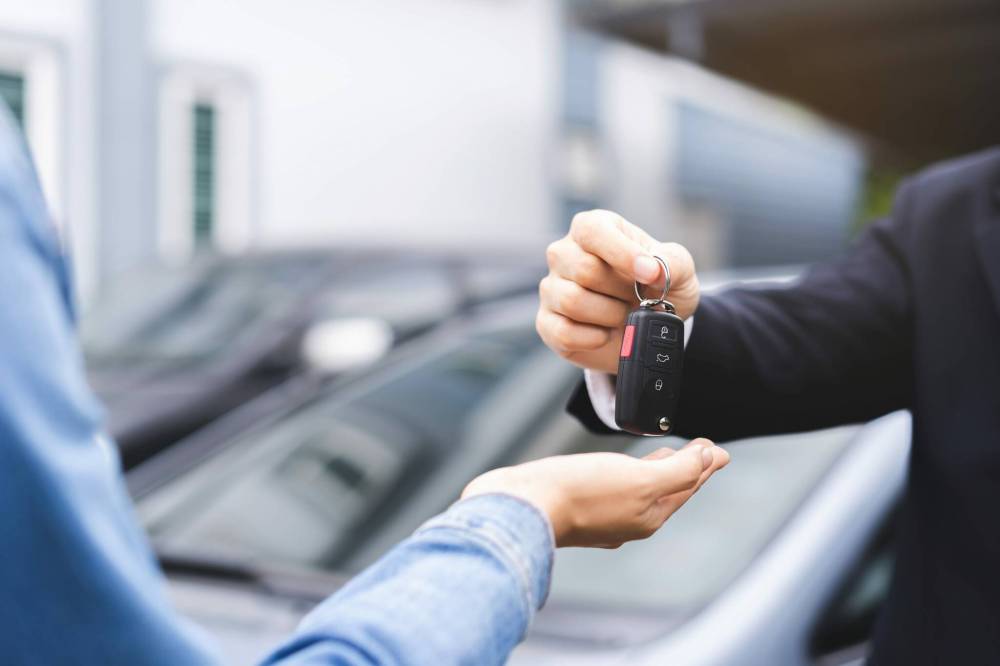The truth of auto theft and vehicle fraud
Advertisement
Hey there, time traveller!
This article was published 26/03/2025 (256 days ago), so information in it may no longer be current.
Owning an automobile is an integral part of Canadian society, dating back to the turn of the 20th century. Cars are often seen as a symbol of freedom because they provide mobility and a sense of control. When buying their homes, buyers invest a significant amount of time to research and protect themselves, but they often fail to give the same attention to their automobile purchases. These days, when a new vehicle can cost almost $100,000, an automobile purchase will significantly impact your finances, so you should do everything you can to protect your investment, and to ensure you aren’t taken for a ride by automobile thieves and fraudsters.
Myth 1: I don’t need to worry. Today’s vehicles are very difficult to steal – Fact: Today’s vehicles are highly computerized and with the right equipment, a tech-savvy criminal can easily steal your vehicle. For every advancement in theft deterrents offered by the vehicle manufacturer, there is a nefarious character trying to defeat the new deterrent.
Myth 2: There is a significant saving when I pay with cash or when the seller will only accept cash – Fact: The odds of the police identifying a criminal after a cash transaction is almost impossible. It is not always foolproof. but using e-transfers, certified cheques, money orders or bank drafts does provide law enforcement with avenues of investigation. A rule of thumb to apply when purchasing anything with cash is ‘How much am I prepared to lose?’

Adobe Stock photo
Vehicles are significant investments, so buyers should be thorough when preparing to make that big purchase.
Myth 3: If I inadvertently purchase a stolen vehicle, my insurance company will cover me – Fact: Insurance companies will only cover legitimately owned vehicles. Even if your insurance company initially allows you to insure and drive the vehicle, it will not cover you if it is subsequently discovered that you purchased a stolen vehicle. Insurance companies can only cover the first victim of the theft, not the subsequent victims.
Myth 4: The vehicles in other provinces are cheaper – Fact: In some cases, yes, you might find a deal online but be prepared for the inherent risks and additional expenses of getting your new purchase home. The potential surprises are endless. Odometer rollbacks and learning the true identity of the vehicle are some of the realities that will kill any excitement you felt.
Some tips before you make your next big vehicle purchase:
• Do your research – Check the automobile’s vehicle identification number (VIN) on the Canadian Police Information Centre (CPIC) database to check if the vehicle is stolen: www.cpic-cipc.ca
You should also check the VIN number on the National High Traffic Safety Administration website. If it says the vehicle has a certain engine size and the subject vehicle has a different-sized engine, there is a problem: vpic.nhtsa.dot.gov
• Purchase or ask for a vehicle history report – A site such as Carfax is useful here. There is a minimal cost for this report but it is useful in determining if a vehicle’s odometer has been rolled back or if there is a vehicle in North America with the same VIN, which could indicate that one of the two is stolen: www.carfax.ca
• Ask the seller for identification – Ensure the seller’s ID matches the vehicle’s registration.
Happy motoring.

Winnipeg Police Service
Fraud Awareness Month
March is Fraud Prevention Month, and the Free Press Community Review is sharing stories from the Winnipeg Police Service on its annual campaign to help you recognize, report and reject fraud.
Our newsroom depends on a growing audience of readers to power our journalism. If you are not a paid reader, please consider becoming a subscriber.
Our newsroom depends on its audience of readers to power our journalism. Thank you for your support.




